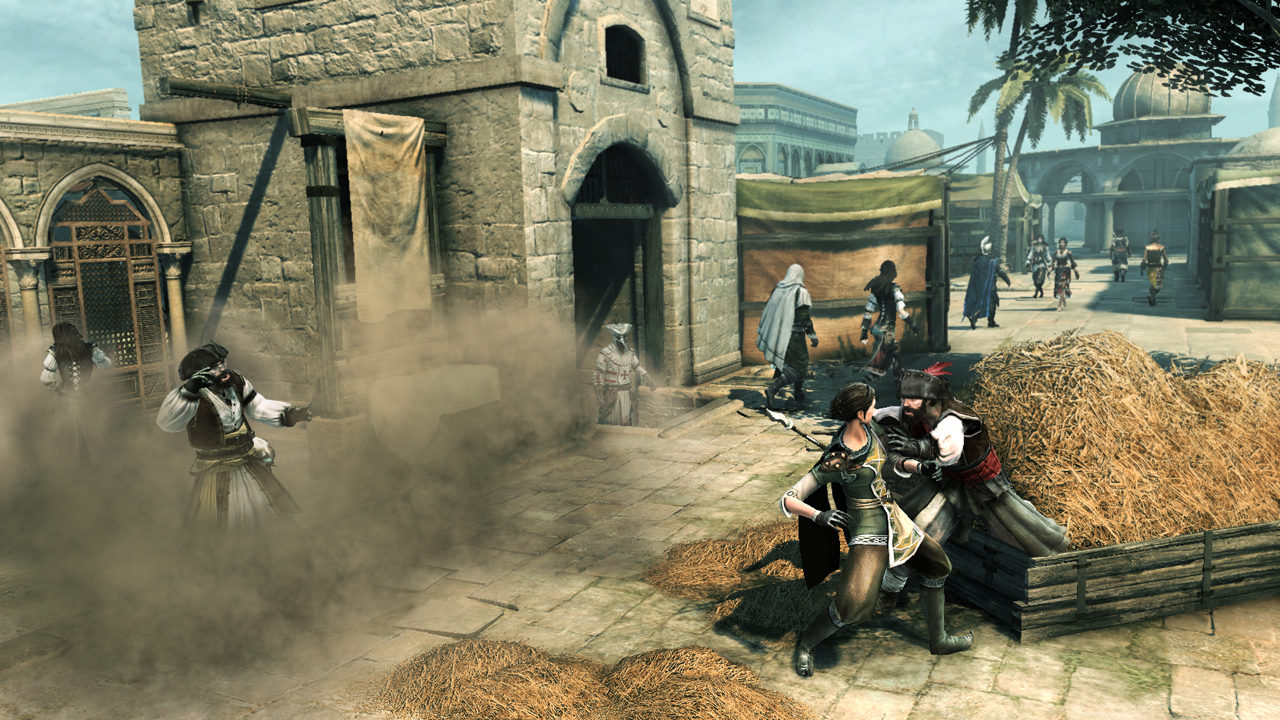GamesRadar+ Verdict
Pros
- +
Hauling ass across rooftops is more fun than ever
- +
Master Assassin missions are a cool addition
- +
Multiplayer remains amazing
Cons
- -
Underdeveloped
- -
disappointing storyline
- -
There's less to do than in Brotherhood
- -
Short on actual revelations about the series' plot
Why you can trust GamesRadar+
When it became clear last year that Assassin’s Creed was going to be a yearly franchise, fans reacted with equal parts excitement and unease. Assassin’s Creed games are sprawling, open-world epics that follow a history-spanning, conspiracy-laden plot about acrobatic killers; is it really possible to do all of that justice on an annual schedule? Ubisoft seems to think so, and with no fewer than six of its worldwide studios on the job, Assassin’s Creed Revelations certainly looks poised to prove the doubters wrong.
Will it, though? Can it? Well, yes… and no. It depends on what you’re hoping to get out of it.
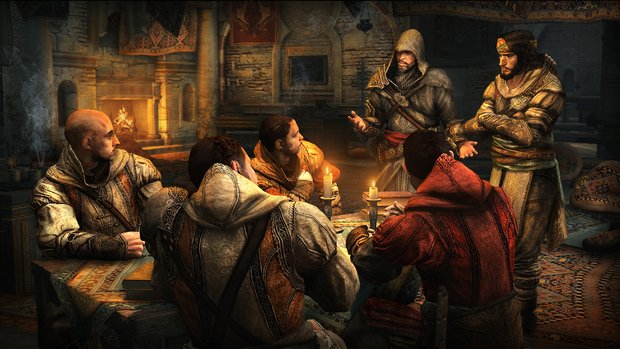
Are you interested purely in the series’ rooftop-hopping gameplay? Then you’ll be happy to know that Revelations continues the “let’s just throw more features at it” approach to design seen in Assassin’s Creed Brotherhood, changing little while piling on new elements. The basic gameplay’s essentially the same as before; playing as 16th century Assassin Ezio Auditore (now the graying, middle-aged leader of his order), you’ll spend a lot of time running up walls, darting across rooftops, parachuting off buildings and destroying guards with an ever-more-lethal assortment of blades, clubs, guns and other era-appropriate weaponry.
Stealth is encouraged but rarely required, opportunities for deadly mischief are everywhere and there’s a huge new city to explore. This time it’s the bustling, predominantly Muslim metropolis of Constantinople (modern-day Istanbul), where Ezio’s come to seek keys that will open a secret library built by his predecessor, Altair. And just like Brotherhood’s Rome, Constantinople is filled with landmarks and vacant shops to buy (which will then funnel money into your bank account and offer you discounts), secrets to uncover and hidden challenge levels to explore.
Unlike Rome, however, nearly all of Constantinople is freely explorable more or less from the moment Ezio arrives there. So if you’re one of the many who’s been irritated by the Creed games’ insistence on blocking off certain areas until you’d unlocked the right memory sequence, that’s definitely a plus.
Also unlike Rome, Constantinople is completely devoid of any horses to ride. Granted, the city’s design is compact, with lots of narrow streets that would make horses unwieldy, and you might not even notice they’re gone. However, their absence is still noteworthy enough to point out.
Oh, and one other thing: Beggars are back, and this time, they come in threes.
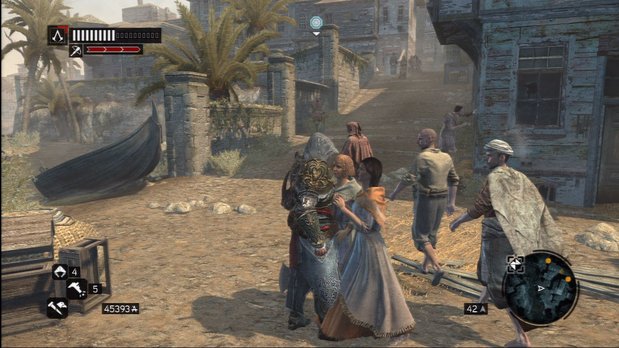
Above: At least you can still throw coins to make them stop bothering you
Not slowing with age
Aside from a new story and a new city, Revelations brings several big additions to the gameplay, the biggest being the hookblade. Far from simply being a way to shoehorn ziplines into the game, the hookblade gives players a little more control and agency over Ezio’s actions, making climbing and swinging across Constantinople’s skyline just a little more fun in the process. With the hookblade equipped, Ezio can grab ledges that are just out of reach, launch himself up the sides of buildings and swing across gaps by hooking onto hanging lamp-like objects (which, when grabbed normally, still let him swing in 90-degree arcs).
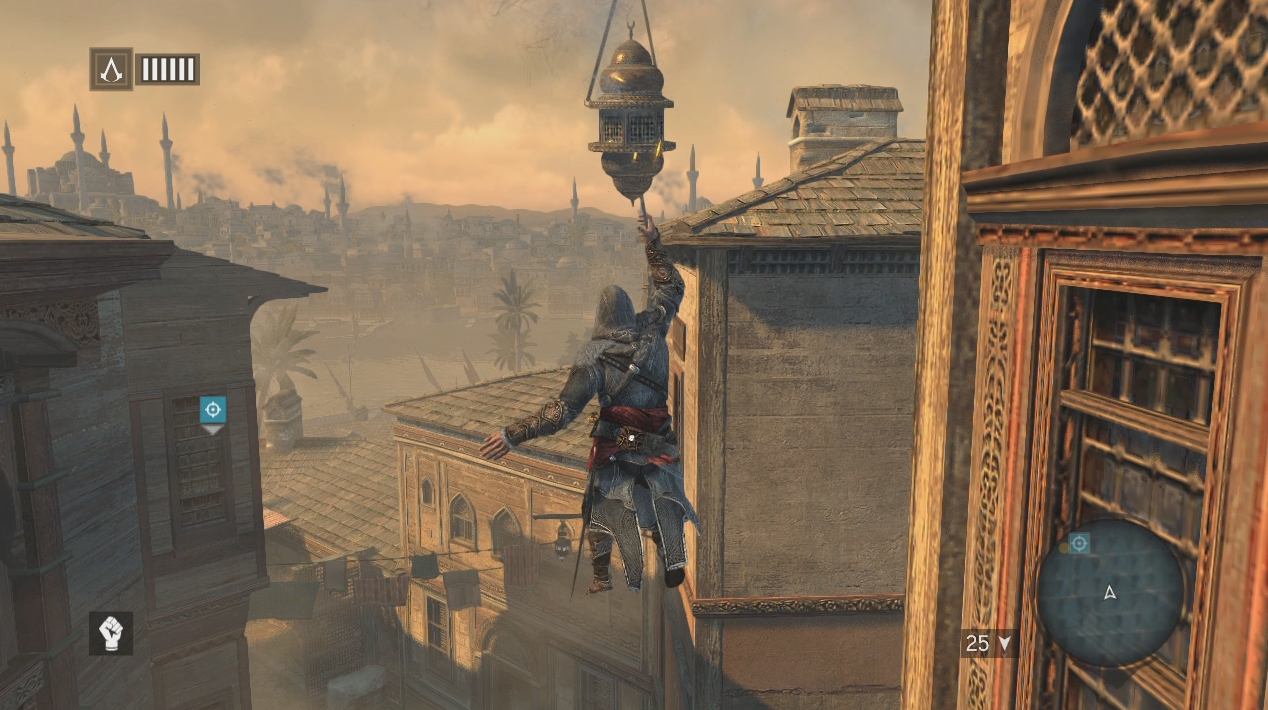
Ezio can also use it to tumble right past any guards in his path, or – by tapping a button at just the right moment – throw them to the ground (or off rooftops, which is much more entertaining). The hookblade’s also good for yanking scaffoldings down onto pursuing guards and, and as you might expect, it makes fighting with Ezio’s hidden blades about 50 percent more gruesome.
Another big addition: Bombs. Using ingredients found everywhere (most frequently in chests placed across the city), Ezio can craft a pretty wide assortment of explosives by combining different shells, gunpowder strengths and payloads. Each can accomplish a different goal, whether it’s simply killing a bunch of guards at once, luring them away from a spot they’re protecting or causing panic with an explosion of animal blood.
Whether you’ll actually ever use all of those bombs is another matter. Most of the guards in Revelations are just as easy to kill as in any other Creed game; as before, they’ll surround you and attack one at a time, and you can either hack away at one until he forgets to block and dies, or simply wait for them to strike and either disarm them, or kill them in one hit with a counter.
Like in previous games, combat can be immensely fun (and it’s flashier than ever here), but its simplicity means that A) there’s little practical benefit to buying new weapons, since anything you wield can kill in one hit, and B) there’s little incentive to use any bomb other than a lethal grenade or a smoke bomb, unless mandated by the mission. The rest demand a certain level of patience; you have to want to mess with your enemies, and mustering that level of interest is difficult when killing them is so much easier and faster.
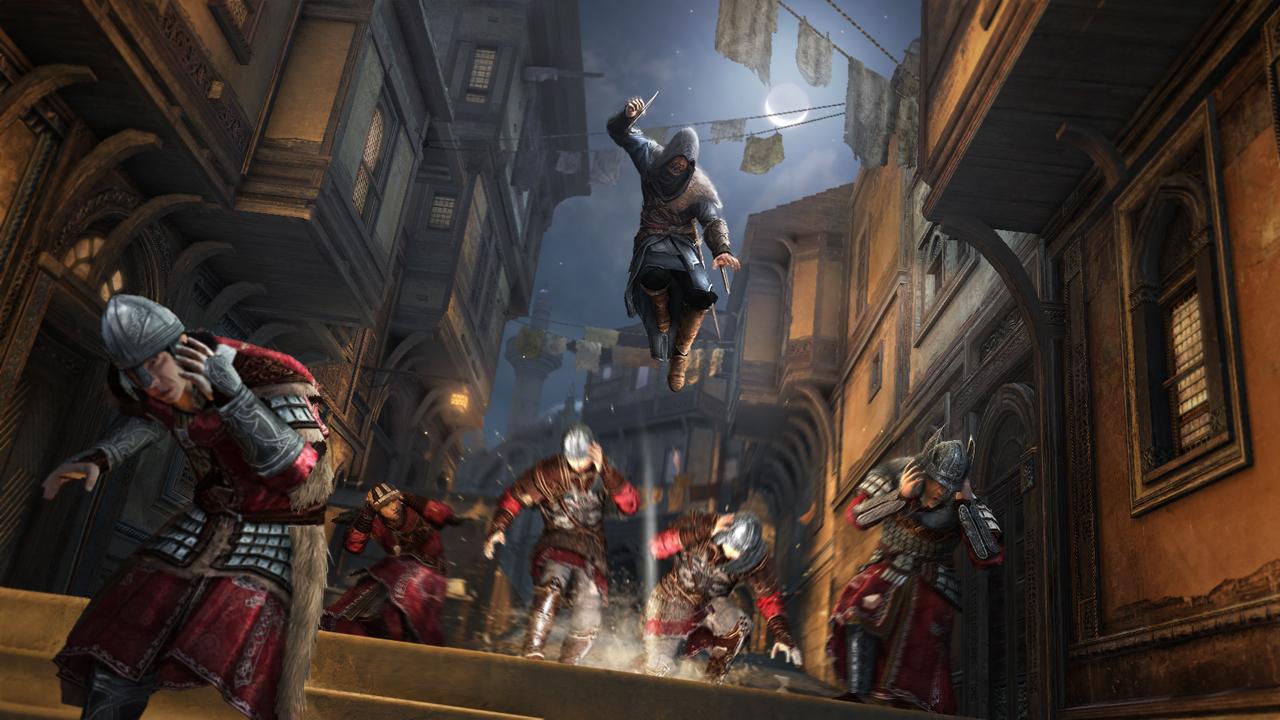
That doesn’t hold true when you meet the Janissaries, however. The elite slave-soldiers of the Ottoman army, the Janissaries are faster, more devious and much tougher than any other enemy in the core series. Taking one down requires at least three “killing” blows, and they have an annoying tendency during combat to step just out of sword range and shoot you with pistols. They’re bastards in a fight (although they’re relatively easy to beat once you understand their patterns), but it’s kind of a nice change to see an Assassin’s Creed enemy that’s actually formidable enough to make avoiding them a serious consideration.
Gather your forces
Like Brotherhood, Revelations pads out its relatively short narrative with plenty of side missions, although these are both less numerous and a little more closely integrated with the storyline than before. The centerpiece this time is your brotherhood of recruitable Assassins, which (as in Brotherhood) can be signaled to help you during a fight, and can be sent off on various errands abroad (which brings you money, nets them experience points and can eventually open foreign cities up for Assassin conquest).
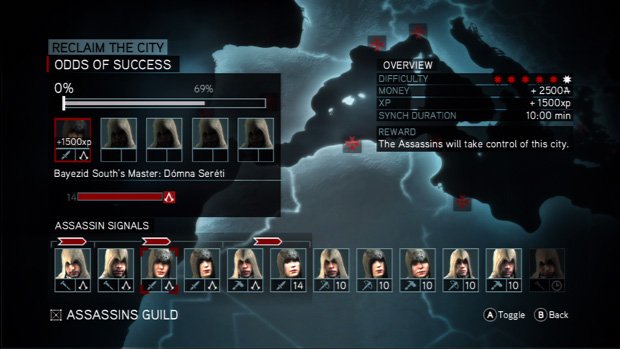
As you slowly conquer Constantinople by taking back Assassin Dens (analogous to Brotherhood’s Borgia Towers), you’ll earn the right to recruit up to 12 Assassin helpers, who now come with short introductory quests. Where in Brotherhood you just had to rescue them from angry guards, you might now have to beat a prospective recruit in a race, or catch one as they’re picking pockets, or rescue one’s wife and daughter from a Templar madman.
Next page: So how's the story?
More info
| Genre | Adventure |
| Description | The fourth Assassin's Creed game, Revelations will be set in Constantinople and will reportedly be the final game in the series to star Ezio Auditore. |
| Franchise name | Assassin's Creed |
| Platform | "PS3","PC","Xbox 360" |
| US censor rating | "Mature","Mature","Mature" |
| UK censor rating | "Rating Pending","Rating Pending","Rating Pending" |
| Release date | 1 January 1970 (US), 1 January 1970 (UK) |
